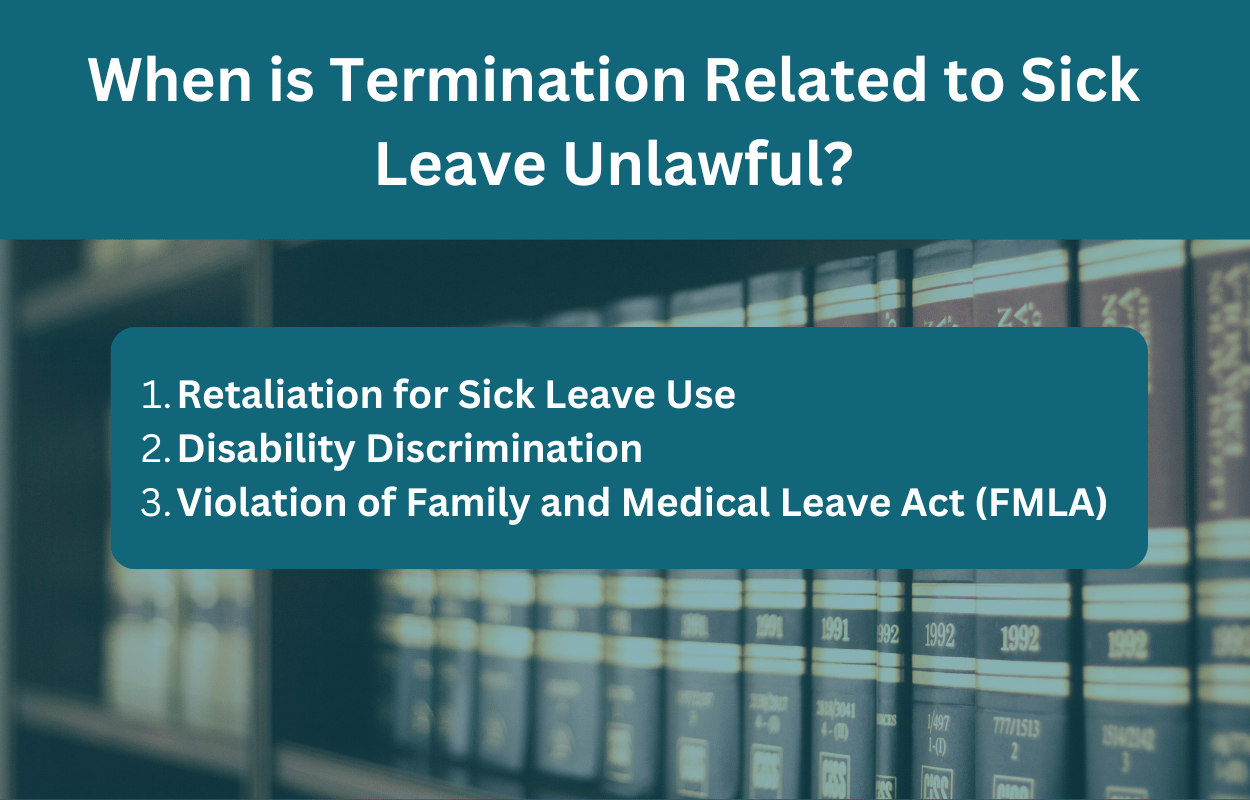Unlawful termination, particularly relating to sick leave, is a critical issue for both employees and employers in Oregon. At Meyer Employment Law, we are dedicated to clarifying your rights and responsibilities under state law, ensuring that you are well-informed and equipped to handle these situations.

Oregon’s Sick Leave Law
In Oregon, the law requires that all employers provide sick leave to their employees. Depending on the size of the business, this sick leave may be paid or unpaid:
- Employers with 10 or more employees (or six or more in Portland) must provide paid sick leave.
- Employers with fewer than 10 employees (fewer than six in Portland) must provide unpaid sick leave.
Employees earn at least one hour of sick leave for every 30 hours worked, up to a minimum of 40 hours per year. This leave can be used for several reasons, including dealing with a personal illness, caring for a family member who is ill, or any purpose allowed under Oregon’s domestic violence leave act.
These rules are a part of the broader Oregon Sick Time Law, which was passed to ensure that all workers in the state have access to sick leave, helping them take care of their health needs without fear of losing income or employment.
For precise legal texts and further information, the Oregon Bureau of Labor and Industries (BOLI) provides comprehensive resources and guidelines on how these laws are to be implemented by employers. Their documentation would serve as the primary reference for these provisions.

When is Termination Related to Sick Leave Unlawful?
Terminating an employee for legitimately using sick leave is generally unlawful in Oregon. Here’s when a termination might be considered unlawful under state law:
- Retaliation for Sick Leave Use: If an employee is fired after taking sick leave that they legally earned, this may be viewed as retaliatory, especially if the termination occurs shortly after the leave was taken. This is unlawful under Oregon law.
- Disability Discrimination: If sick leave is used for a serious health condition that qualifies as a disability, the termination could also constitute disability discrimination. Employers are required to provide reasonable accommodations for disabled employees, which might include allowing them to use their entitled sick leave.
- Violation of Family and Medical Leave Act (FMLA): For employers covered under FMLA, terminating an employee for using leave for a qualifying reason may also violate federal laws, which protect leave for personal or family illness.

What Employees Can Do
If you believe you’ve been unlawfully terminated due to the use of sick leave, there are several steps you should consider:
- Document Everything: Keep detailed records of your sick leave requests, any related correspondence with your employer, and any comments made by your employer regarding your leave.
- Review Company Policy: Ensure that your use of sick leave was in accordance with company policy and the law.
- Seek Legal Advice: Consult with an employment law attorney to discuss your situation and explore your legal options.
What Employers Should Remember
To avoid unlawful terminations and potential litigation:
- Understand the Law: Ensure that your company’s policies comply with Oregon’s sick leave laws and the FMLA.
- Train Management: Educate your supervisors and HR personnel on the proper handling of sick leave and the legal protections for employees.
- Maintain Fair Policies: Apply your sick leave and termination policies consistently and fairly to all employees.

Conclusion
At Meyer Employment Law, we understand the complexities surrounding employment laws in Oregon. Whether you’re an employee who feels wronged or an employer aiming to navigate the intricacies of employment laws, we’re here to provide clear, effective legal guidance. Unlawful termination due to sick leave can have significant ramifications, and navigating these waters requires a thorough understanding of your legal rights and obligations.
For personalized advice or to discuss a specific case, feel free to reach out to Meyer Employment Law. Protecting your rights and ensuring fair employment practices is our utmost priority.
Discrimination Law
Read more about Oregon discrimination law.




